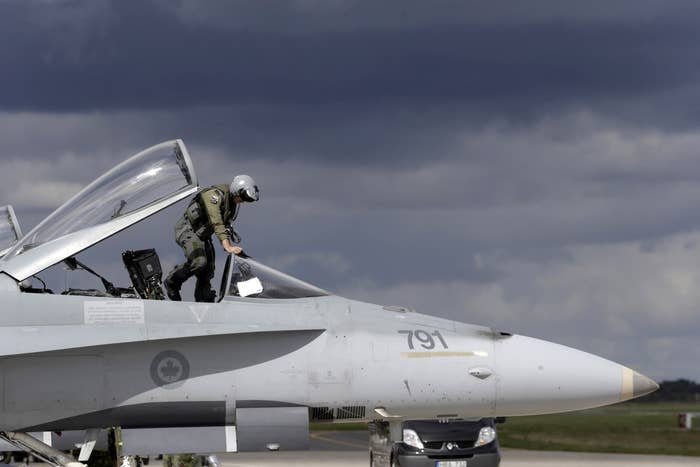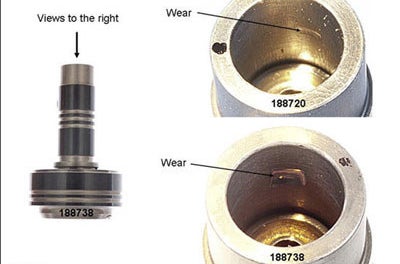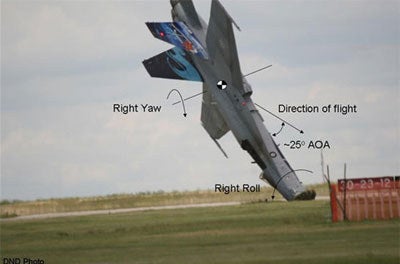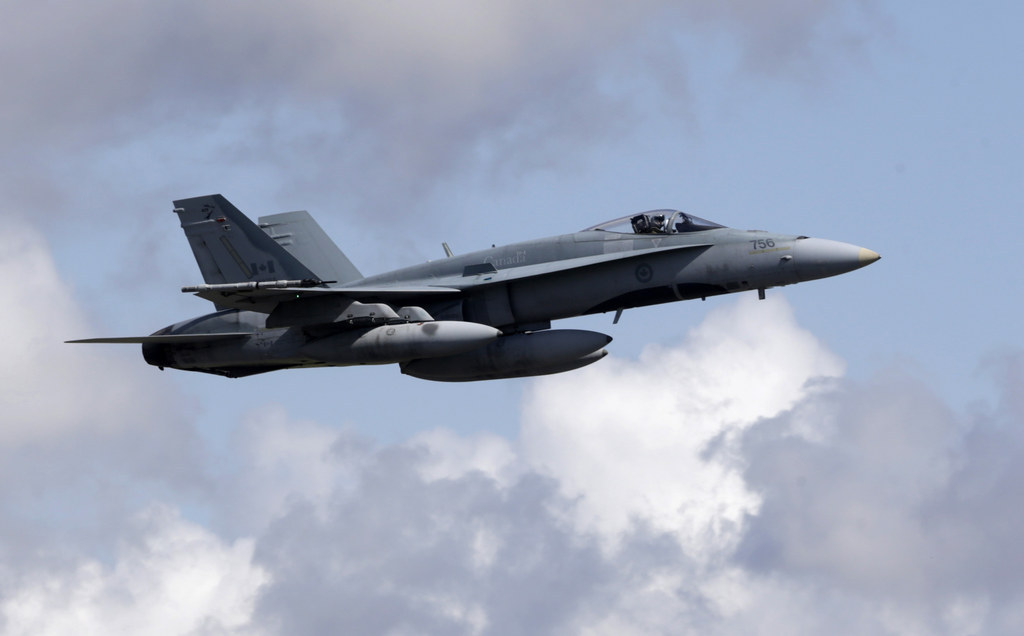The air force has yet to finish replacing an engine part that caused a CF-18 Hornet to fall out of the sky more than five years ago, despite the air force saying it was “expediting” the process.



"In response to this occurrence, the Royal Canadian Air Force (RCAF) expedited the implementation of a program to upgrade all CF188 MFCs," the 2012 investigation report read. It said the air force was also changing the air show routine to make it safer.
But more than five years after the crash, the air force says it will be another three years before it’s done replacing all the main fuel controls (MFCs).


"The upgrade to the MFCs has commenced and remains in progress," Capt. Alexandre Munoz said in an email. "Currently 87 percent of the RCAF MFC inventory has been upgraded and the forecasted to be complete by March 2018."
The 2012 report said the old MFCs — which had previously caused similar engine malfunctions — would "be upgraded by August 2015."
Delays in completing flight safety reports and — as a result — implementing the preventative measures they recommend have been a recurring issue for the air force.
The air force's 2015 flight safety report said there were 405 overdue reports in the previous year, or about 13% of all reports that year — but that figure didn't include the 151 overdue reports from previous years.
"Priority of effort must shift to the accurate and timely capture of lessons learned and their prompt publishing in order to prevent accidental loss of personnel and critical resources," the report said. It recommended that those in charge "assign the right amount of resources to keep their Flight Safety (FS) program at an acceptable status."
Munoz, in his response to BuzzFeed Canada, focused rather on the number of reports that had been completed, saying that "the RCAF Flight Safety program is considered to be effective, and is a program that compares favorably with those of our Allies."
Experts have noted that the military has very strict safety protocols because of the risky nature of the work, and that the air force's overall flight safety record is excellent.
Munoz said it was important to point out that "the vast majority of investigations are conducted at the Wing and Unit level and deal with minor incidents."
He said that there are 220 outstanding preventative measures related to the fighter jet fleet, out of a total 8,106 spanning the past decade.

